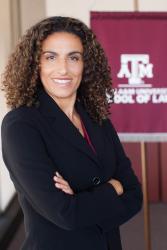Content from the Brookings Doha Center is now archived. In September 2021, after 14 years of impactful partnership, Brookings and the Brookings Doha Center announced that they were ending their affiliation. The Brookings Doha Center is now the Middle East Council on Global Affairs, a separate public policy institution based in Qatar.
After a divisive presidential election year with the purported threat of terrorism from the Middle East dominating the news cycle, spending Christmas in Egypt was refreshing. Completely contradicting the xenophobic stereotypes of Arabs as violent and religiously intolerant, I leisurely walked with Egyptians along the boardwalk of the tranquil Red Sea decorated with Christmas trees and holiday lights. Meanwhile, in the hotels and open-air cafes, middle and upper class Egyptian Christians and Muslims friends dined and socialized together during the holiday weekend. It was a refreshing experience, far removed from the vitriol of Islamophobia, racism, and xenophobia that infects American post-election discourse.
My Christmas visit to Egypt brings to light the reality that what we read in the media about the Middle East is so narrowly focused on violence – real, exaggerated, or imagined – that it is no surprise Americans are easily manipulated by the politics of fear. We expect all Middle Eastern countries to look like ISIS-controlled territory. We are indoctrinated to believe that we must fight “them” because they want to kill “us.” We are tricked into consenting to spending billions of dollars on military endeavors that have little to do with our public safety and a lot to do with propping up dictators; we do not question our politicians’ false claims of a clash of civilizations between East and West, between Muslim and Christian.
Yes, there is real violence in Syria, Yemen, and part of Iraq where proxy wars are destroying societies. But the day-to-day activities of the other hundreds of millions of people who live in the Middle East does not consist of actively resisting Western democracy or sympathizing with terrorist organizations on social media sites. Most people spend their time thinking about how to make ends meet in stalled economies. As the Egyptian pound fell from 8 to 19 pounds to the dollar, salaries were sliced in half. Most Egyptians now spend more than fifty percent of their income on buying food and the remainder on covering basic necessities. They fret over how they will pay the private school fees for their children because the public school system is reputed to graduate students who can barely read. They worry for their sons who cannot get married because they cannot afford to move out of the family home. For the lucky few who can afford a holiday at Egypt’s beautiful Red Sea, they spend quality time with their families away from the stress of urban life in Cairo and Alexandria.
What Middle Easterners are not doing is conspiring to kill Americans or plotting how to join terrorist groups. The over 90 million people in Egypt have other more important things to think about than appeasing Americans and Europeans’ Orientalist racial tropes of the Muslim terrorist. They are looking to work, expand their businesses, and improve their family’s lot in society. And when their authoritarian regimes (most of whom are supported by Western governments) attempt to distract them with conspiracy theories of American plots to destroy the economy – they are not taking the bait. Having suffered from decades of poor governance, they know all too well that these are common ploys deployed to shirk responsibility.
So as our leaders distract us with foreign boogeymen to blame for American politicians’ failures in governance and economic policies, we should learn from our counterparts in the Middle East. Like us, Muslim and Christian Arabs want jobs, decent wages, good infrastructure, and government accountability. Sharing our contempt for terrorism, they view the tiny minority of terrorists in the Middle East as obstacles to their aspirations for personal and societal prosperity.
Global citizens with the same fundamental human aspirations, I hope we in the West will recognize the recent anti-Muslim and xenophobic discourse for what it is – a tool of political manipulation used to persuade Americans to be complicit in the same policies and violence that led us all to this point.
As I write this postcard during Christmas in Egypt, I am inspired by Egyptians’ resilience and tenacity despite challenging economic times and a failed revolution. I will follow their example to remain optimistic for 2017 as I return to a polarized America split apart by a historically divisive presidential election.
This article was first published on The Huffington Post.
The Brookings Institution is committed to quality, independence, and impact.
We are supported by a diverse array of funders. In line with our values and policies, each Brookings publication represents the sole views of its author(s).




Commentary
Op-edPostcard from Egypt during Christmas
Thursday, December 29, 2016